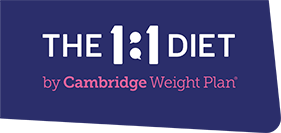In the realm of health and nutrition, few topics have garnered as much attention and debate as Intermittent Fasting. This dietary approach, which alternates between periods of eating and fasting, has been hailed by many as a revolutionary way to optimise health and manage weight. But what exactly is it, and how does it work? Let’s delve deep into the world of Intermittent Fasting with insights from The 1:1 Diet team.
The Basics of Intermittent Fasting
At its core, Intermittent Fasting (IF) is not about what you eat, but when you eat. It involves cycling between periods of eating and fasting, allowing the body to tap into stored fat for energy during fasting windows.
- Intermittent Fasting Schedule
The intermittent fasting schedule can vary based on individual preferences and goals. Common schedules include the 16/8 method, where one fasts for 16 hours and eats during an 8-hour window, or the 5:2 method, where one consumes a regular diet for five days and significantly restricts calorie intake for two non-consecutive days.
- The 16/8 Method
The 16/8 intermittent fasting approach is among the most popular. It typically involves skipping breakfast and consuming meals within an 8-hour window, such as from 12 pm to 8 pm.
- Safety Concerns
A common question is, is intermittent fasting safe? For most individuals, IF is safe when done correctly. However, it’s essential to listen to your body and consult with a healthcare professional, especially if you have underlying health conditions.
- Intermittent Fasting for Women
Intermittent fasting for women can differ slightly. Hormonal fluctuations can impact how women respond to fasting, so it’s crucial to adjust the schedule based on individual needs and monitor any changes in menstrual cycles or mood.
- The Benefits
The intermittent fasting benefits are manifold. From improved metabolic health, enhanced brain function, to potential longevity benefits, IF has been linked to numerous positive health outcomes.
- Crafting the Right Diet
While IF focuses on eating windows, what you eat during those windows is crucial. The intermittent fasting diet plan 16/8 emphasises nutrient-dense foods that provide sustained energy and satiety.
- Schedule for Women
The intermittent fasting schedule for women might need more flexibility, especially around menstruation. Some women find shorter fasting windows or alternate-day fasting more suitable.
The 1:1 Diet Approach to Intermittent Fasting
At The 1:1 Diet, we believe in holistic, individualised health solutions. Recognising the growing interest in Intermittent Fasting, we’ve integrated its principles into our offerings, ensuring our clients receive expert guidance, tailored schedules, and continuous support.
Whether you’re seasoned faster or just starting, we provide insights, resources, and personalised plans to ensure your weight loss journey is effective, safe, and aligned with your goals.
Conclusion
Intermittent Fasting is more than just a dietary trend; it’s a testament to the body’s incredible adaptability and resilience. By understanding our body’s natural rhythms and harnessing the power of fasting, we can unlock a myriad of health benefits.
However, like any dietary approach, IF is not one-size-fits-all. It requires understanding, experimentation, and adjustments based on individual needs. With the right guidance and a balanced approach, Intermittent Fasting can be a transformative tool in one’s health journey.
At The 1:1 Diet, we’re here to guide, support, and empower you every step of the way. Dive deep into the world of Intermittent Fasting, explore its potential, and let The 1:1 Diet be your trusted companion on this transformative journey. Welcome to a world of empowered choices, holistic well-being, and a community that understands and supports your goals. Welcome to The 1:1 Diet!
Frequently Asked Questions (FAQs)
- How do you perform intermittent fasting?
Answer: Intermittent fasting involves cycling between periods of eating and fasting. To perform intermittent fasting:
- Choose a fasting method that suits your lifestyle (e.g., 16/8, 5:2).
- During fasting periods, avoid caloric intake. Drink water, herbal teas, or black coffee.
- During eating windows, consume balanced meals and avoid overeating.
- Listen to your body and adjust as needed. If you feel unwell, consider shortening your fasting period or consulting a healthcare professional.
- What are examples of intermittent fasting?
Answer: Examples of intermittent fasting include:
- 16/8 method: Fast for 16 hours and eat during an 8-hour window.
- 5:2 method: Eat normally for five days and restrict calorie intake to about 500-600 calories on two non-consecutive days. On The 1:1 Diet plan, this is called Step 1 which is 3 meal replacement products per day.
- Alternate-day fasting: Alternate between days of regular eating and days of fasting or very low-calorie intake.
- Eat-Stop-Eat: 24-hour fast once or twice a week.
- What are the best hours for intermittent fasting?
Answer: The best hours for intermittent fasting depend on individual preferences and lifestyle. A common schedule for the 16/8 method is fasting from 8 pm to 12 pm the next day and eating between 12 pm and 8 pm. However, some might prefer an earlier or later window. It’s essential to choose hours that align with your daily routine and natural hunger cues.
- What is the best intermittent fasting for weight loss?
Answer: The effectiveness of intermittent fasting for weight loss can vary based on individual factors. However, many find the 16/8 method to be sustainable and effective for weight loss due to its simplicity and adaptability. The key is consistency, a balanced diet during eating windows, and ensuring a calorie deficit.
- How does intermittent fasting work?
Answer: Intermittent fasting works by creating periods where the body is not processing food, allowing it to burn stored fat for energy. During fasting, insulin levels drop, prompting the body to enter a fat-burning state. Additionally, fasting can lead to cellular repair processes and changes in hormone levels that facilitate weight loss and metabolic health.




